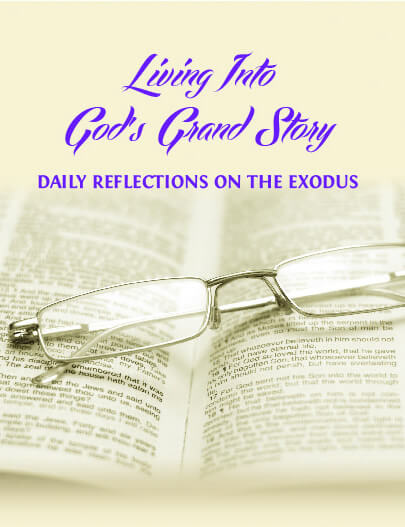
Joshua 1:1-9, 20-24
For seven hundred long years the people of God have waited for this day! Seven hundred long years since God promised this land to Abraham! Now today God’s people stand in the Promised Land, ready to posses their possessions. At the Lord’s command they are setting up two cairns, two stone monuments for marking this day. One pile of stones stands in the middle of the Jordan, and another pile on the river’s other side. They have crossed over! Just plain, ordinary river rock witnessing to future generations of God’s saving power. By these two stone piles “all the peoples of the earth may know that the hand of the LORD is mighty”. Imagine children one day asking how a monument of stones stood in the middle of the river! Parents get to tell their children how Israel once crossed over the Jordan on dry land.
These monuments will mark one of the most important days in the history of the world and of God’s salvation story. From this day forward God’s people will fight battles already won. God has promised: “Every place that the sole of your foot will tread upon I have given you” (Joshua 1:3). They must press on.
By the repeated use of the verb “cross over” throughout the book of Joshua, we understand that the Israelites now think of themselves as the people who have crossed over. Just like their father Abraham who crossed over the river Euphrates to follow God’s promise, they have also crossed over. Thus, they will always call themselves the “Hebrews”, literally, “those who have crossed over”. They are leaving behind the old, and pressing forward into what God has promised.
God intends a great lesson for us here. C. H. Parkhurst, a nineteenth century Presbyterian minister and social reformer, pressed the fight against New York City’s Tammany Hall corruption. He was inspired by the story of Israel’s crossing over into the Promised Land and wrote:
The Egypt-history, the wilderness-history, the Jordan-history, never become obsolete. The Books of Exodus, Numbers, Joshua, are almost as valid histories of our individual lives as of the life of the Hebrews at large… It is one of the marvelous characteristics of these old Bible-narratives that they still furnish us better figures and phrases than any new ones we can invent for describing events and transitions in our own experience (Butler Bible Works).
We do not have to pile up river rock to remember the amazing things God has done in our lives. Nor need we build physical monuments to declare that, “the hand of the LORD is mighty”. But we do need to often stop and remember the way God has led. Grace now teaches us to speak both of our victories and our falling short, our Red Sea triumphs and our fearful wanderings. The years of the Wilderness and all their struggle and pain, are now remembered as the way leading us to new life. We are new people, the people who have crossed over. We are Hebrew people!
REFLECTION
- Thinking back over your life, what have been some of your Egypts? Your Wilderness wanderings? Your flooded Jordan? Your crossings over? Is there anything you want to say to God as you remember?
- Take some moments to ponder, and then take into your day the words of the following Psalm:
Give ear, O my people, to my teaching;
incline your ears to the words of my mouth…
We will tell to the coming generations
the glorious deeds of the LORD, and his might,
and the wonders that he has done (Psalm 78:1, 4b). - What are some stories that you want to tell others of your Exodus journeys?



